Disability Access is Fun: Empowering Disabled Children to Enjoy Social Play
Welcome to our light-hearted blog celebrating the International Day of Persons with Disabilities on December 3rd, 2023. In this post, we’ll delve into the importance of disability access and inclusion, with a specific focus on how we can help disabled children access social fun and play. Join us as we explore the significance of inclusive play in fostering creativity, social skills, and emotional well-being.
The Power of Play:
Play is an incredible tool that shapes childhood experiences. It not only promotes imagination and self-expression but also enables children to develop crucial social skills while having a great time. However, it’s essential to remember that every child, regardless of ability, deserves the opportunity to experience the magic of play. By promoting inclusive play, we can create communities where all children can thrive and foster a sense of belonging.
Wheelchairs for Kids:
One organization at the forefront of promoting disability access and fun is Wheelchairs for Kids. Their mission is to provide customized wheelchairs to children with disabilities worldwide. By breaking barriers to mobility, this remarkable organization helps disabled children actively participate in social activities and experience the pure joy of play. Their tireless efforts are creating a world where children can move freely, interact with their peers, and explore their surroundings without hindrances.
Inclusive Spaces:
Creating inclusive spaces is vital in encouraging disabled children to actively participate in social fun and play. These inclusive spaces break down physical and social barriers, making it easier for everyone to join in the fun. Accessible playgrounds, adaptive sports programs, and inclusive community events are just a few examples of how communities can foster access and inclusion. By investing in these spaces, we equip disabled children with equal opportunities to engage, connect, and form meaningful relationships with their peers.
The Celebration of Differences:
Embracing the celebration of differences is a critical component of a truly inclusive society. It’s essential to foster an environment where the diverse abilities of children are acknowledged and appreciated. When peers and society as a whole embrace these differences, disabled children feel valued and included. By educating ourselves and promoting positive attitudes towards disability, we can contribute to a more inclusive and accepting environment for everyone.
The Role of Parents and Caregivers:
Parents and caregivers play a fundamental role in ensuring disabled children have opportunities for social play. By seeking out inclusive activities and advocating for accessible venues, parents empower their children to participate fully and embrace their abilities. Furthermore, when parents foster an environment of acceptance and support, they contribute to building resilience and self-confidence in disabled children. By emphasizing that every child’s voice matters, parents play an essential part in creating inclusive communities that celebrate and support all children.
Empathy in Action:
Developing empathy in all children is crucial to building a compassionate society. Encouraging friendships and inclusive play helps challenge preconceptions and fosters a sense of acceptance. Inclusive playdates, cooperative games, and open conversations about disabilities are all powerful ways to promote understanding and empathy. By normalizing interactions with disabled individuals, we contribute to a society built on empathy, compassion, and genuine inclusivity.
Raising Awareness: International Day of Persons with Disabilities:
On December 3, 2023, we commemorate the International Day of Persons with Disabilities. This day presents an opportunity to celebrate achievements, raise awareness, and mobilize support for disabled individuals worldwide. By actively participating and sharing stories of inclusivity, we contribute to a future that is more accessible and inclusive for all. Through our collective efforts, we have the power to create a society where every child experiences the same joy, laughter, and excitement that playtime brings. Let’s work together to make disability access fun!
In conclusion, disability access and inclusion are crucial for ensuring that all children, regardless of ability, have equal opportunities for social fun and play. The efforts of organizations like Wheelchairs for Kids, combined with individual advocacy, create a ripple effect of positive change. By actively promoting inclusive play spaces, challenging ableism, and nurturing empathy, we strive towards a society where every child can experience the joy, laughter, and excitement that playtime brings. Together, let’s make disability access fun!

Recent blogs
The Difference Between Universal Design and Accessibility in the Australian Context
In Australia, the concepts of universal design and accessibility play a crucial role in creating [...]
Read moreMay
Emergency Call Buttons – Enhancing Safety and Accessibility in Unisex Accessible Bathrooms
In the pursuit of inclusivity and accessibility, the importance of ensuring the safety and security [...]
Read moreMar
Crafting Inclusive Spaces: Our 5 Expert Tips on Universal Design Principals
Discover 5 expert tips from Vallabh Bailey Consulting on integrating universal design principals into architecture [...]
Read moreFeb
Keeping Accessibility Front of Mind in 2024: The Benefits of Designing for Disability Access in the Early Stages of the Design Process
Discover the benefits of designing for disability access in the early stages of the design [...]
Read moreJan
Keeping Accessibility Front of Mind in 2024: What is your one word for a better accessible 2024?
Learn why keeping accessibility front of mind in 2024 is crucial for creating inclusive environments [...]
Read moreJan
International Disability Awareness Day: Empowering Children with Disabilities to Enjoy Social Play
Delve into the importance of disability access and inclusion, with a specific focus on how [...]
Read moreDec